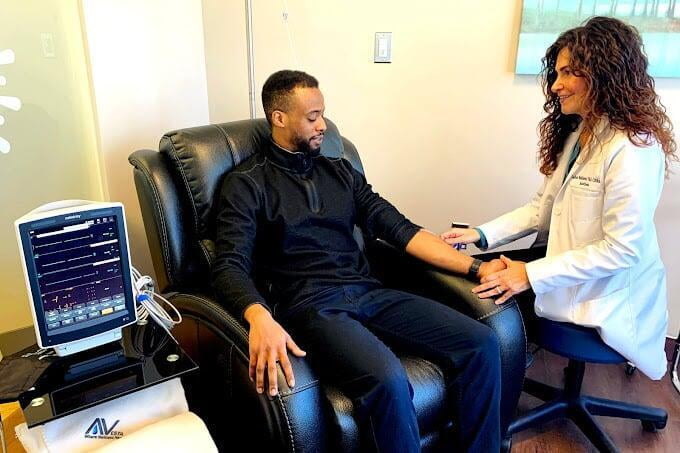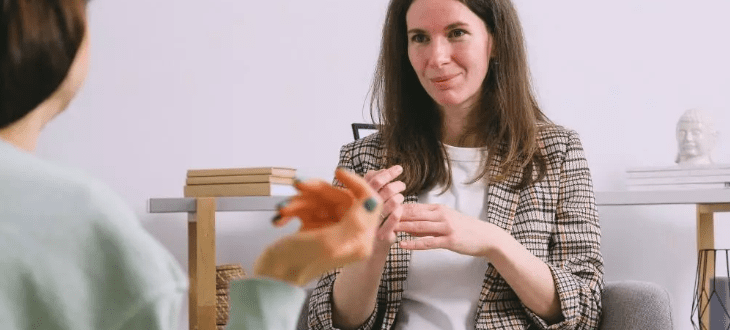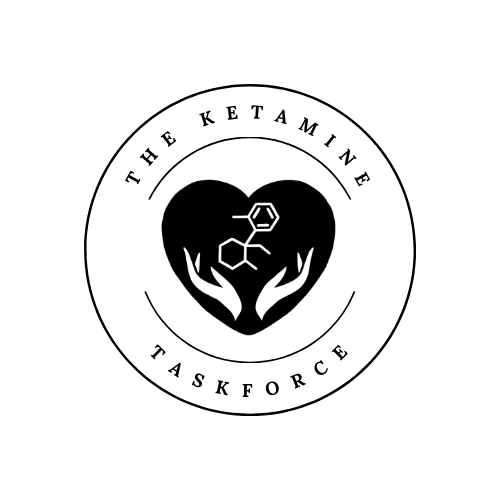
Ketamine therapy for depression, PTSD, anxiety, chronic pain, and addiction
Ketamine therapy for depression, PTSD, anxiety, chronic pain, and addiction
Mood disorders and chronic pain primarily influence your emotional state, but they can also affect your productivity, relationships, and decision-making.
At our ketamine infusion clinics, our providers work alongside your care team as you undergo treatment to come up with the most efficacious treatment plan for you.
- Intravenous (IV) ketamine infusions are a highly efficacious treatment for individuals with mood disorders, and can help those with chronic pain
Our success rates in mood disorder patients aged 14-65 align with the research, and are 75-80%
Research shows that ketamine can help individuals who have been treatment-resistant to other medications
We follow a unique protocol that is individualized to each patient based on their response

How does ketamine work in the brain?
Ketamine is a great alternative to other medications for mood disorders and certain pain disorders because it is non-addictive. It works by affecting the chemical communicators in your brain called neurotransmitters. Specifically, it increases glutamate and gamma-aminobutyric acid (GABA).
When these two neurotransmitters are out of balance, you experience increased symptoms associated with your mood disorder like anxiousness and unrealistic thoughts. Among its other roles, glutamate increases neural connections and influences how you feel about and respond to your experiences.
What to expect from treatments:
- Timeline The general treatment timeline for mood disorder patients includes an induction phase of six to eight 45-60 min. treatment sessions, spread over a 2-3 week period.
The timeline for pain patients includes an induction phase of three to five consecutive 4-hour infusions. This phase is then followed by a much more individualized maintenance phase, which will extend the time between visits until patients feel stable enough to come in only as needed.
- Effectiveness On average, patients feel effects within the first 4 treatments. With permission, we work with the other providers on your care team to provide optimal care. We highly recommend continuing regular care with a mental health practitioner throughout your treatment with us.
- Response The response to ketamine is very individual: some patients feel the effects right away, while others require all induction infusions, and occasionally more treatments to notice a change in their mood or pain. We will assess your response at treatments 5-6 to determine how you are responding and how we can optimize the dosing to suit your response.
Patient Testimonials
Patient Testimonials






